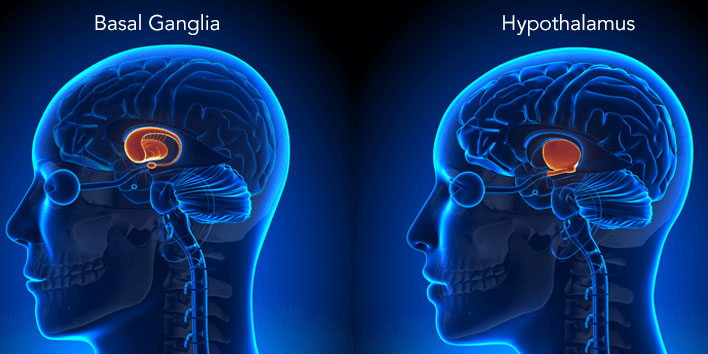Prioritizing mental health has never been more crucial. Depression, anxiety, and stress are becoming increasingly common among the general population. Because of these issues, our daily lives, jobs, and relationships with others may need to evolve. A person's social circle, including their friends and family, as well as their community, are all impacted by their mental health. When we know how common these problems are, we can aid those in need more effectively. In this article, we'll take a look at mental health today, at the most prevalent problems, and at how these disorders impact society. Acquiring this knowledge is vital for building a better, more compassionate society.

Mental Health Prevalence: A Global Perspective
Current Statistics and Trends
The prevalence of mental health problems is increasing worldwide. Among the most frequent mental health issues, millions of people throughout the globe suffer from anxiety and depression, according to recent research. An increase in reports of stress and mental health issues is a direct result of the COVID-19 epidemic. These tendencies show how important it is to raise awareness and provide resources for mental health. The necessity of prompt and efficient therapies for mental health issues is becoming increasingly acknowledged in today's quickly evolving society.
Age-Related Variations
Age is a factor in mental health difficulties. The use of social media and the demands of school are associated with an increase in the prevalence of mental health issues among young people. Work and family obligations are common sources of stress for middle-aged people. Isolation and changes in mental health associated with aging, such as dementia, may be challenging for older persons. In order to successfully handle these unique issues, it is necessary to provide age-specific assistance and raise awareness.
Gender and Socioeconomic Factors
There is a strong correlation between gender, socioeconomic position, and mental health. Depression and anxiety are more common among women, but males are less likely to seek treatment because of social stigma. People from lower socioeconomic backgrounds are more likely to suffer from mental health disorders due to financial hardships, employment uncertainty, and substandard housing circumstances. In contrast, mental health services tend to be more accessible to individuals who are better off financially and educationally. These differences underscore the need to provide equal access to mental health treatments and support for all members of society.
Common Mental Issues in Today's Society
Depression and Anxiety Disorders
Two of the most prevalent mental health concerns in the modern world are anxiety and depression. Extreme sadness and a lack of interest in once-pleasurable activities are symptoms of depression. Feeling overwhelmed by ordinary circumstances is a common symptom of anxiety. Disruptions to everyday life, relationships, and health may result from these problems. Multiple variables, including heredity, the environment, and mental health, are often associated with them.
Stress-Related Disorders
The prevalence of illnesses associated with stress is on the rise. For example, severe experiences may lead to mental health issues like post-traumatic stress disorder (PTSD). Anxieties, nightmares, and flashbacks are symptoms of post-traumatic stress disorder (PTSD). Burnout is another stress-related disorder that usually arises from long-term job stress. Exhaustion, cynicism, and a diminished sense of professional competence are symptoms. People with these diseases often struggle in many areas of daily life.
Substance Abuse and Addiction
Problems related to substance misuse and addiction have grown in recent years. The use of intoxicating substances, including narcotics, prescription medicines, and alcohol, is at the root of these problems. A person's health, relationships, finances, and legal situation may all take a hit when they're addicted. It's a coping mechanism for deeper problems like stress, trauma, or mental illness.
Factors Contributing to the Rise of These Conditions
These prevalent mental health problems are on the increase due to several causes. Increasing levels of stress in modern life, both at work and at home, are major contributors. The rise of online communities and social media has also brought new difficulties, especially for the younger generation. Cyberbullying, social isolation, and having inflated standards for one's physical attractiveness are among the problems that may arise from using these platforms. Financial stress and job uncertainty are two examples of economic variables that worsen mental health problems. People with mental health issues may be reluctant to seek care due to societal stigma, which may exacerbate their illnesses. To effectively manage and prevent these prevalent mental health concerns, it is vital to understand these underlying variables.
Mental Health Social Impact
Effects on Individual Lives and Relationships
Relationships and daily life are not immune to the effects of mental illness. A person's relationships with those closest to them, as well as those at work, might be affected by these changes in thought, emotion, and behavior. Disengagement from social activities and relationships is a symptom of mental health issues, including depression and anxiety. Personal relationships could be further complicated by stress-related diseases, which can induce irritation or mood swings. For many people with mental health concerns, the strength of these connections is crucial to their general wellness.

Influence on Workplace and Economic Productivity
Workplace dynamics and economic productivity are also profoundly affected by mental health disorders. Problems focusing, decision-making, and interacting with coworkers are common among those suffering from mental health issues, including anxiety and depression. Reduced output, higher absence rates, and, in extreme circumstances, job loss are all possible outcomes. Healthcare costs missed wages, and decreased productivity all contribute to the high monetary price tag of mental health problems. The significance of mental health at work is becoming more acknowledged by employers, who are responding by providing resources to their workers.
Broader Societal Implications
Healthcare System Strains
Healthcare systems throughout the globe are facing a growing challenge due to the rising incidence of mental health concerns. Many nations are struggling to meet the rising demand for mental health services due to a lack of funding and qualified personnel. Extended wait periods for treatment and subpar care are common outcomes of this disparity. People with mental health concerns have complicated requirements, and the healthcare system has to change to meet them. Holistic and integrated treatment is what people with mental health issues need.
Cultural and Social Attitudes Towards Mental Health
A society's approach to mental health is greatly influenced by cultural and social views. Many individuals avoid getting treatment for their mental health issues because of the pervasive stigma and misconceptions surrounding these topics. A deterioration of circumstances and an increase in community members' untreated mental health issues may result from this. In order to change these attitudes, it is essential to promote education and awareness about mental health. The best way to encourage people to talk about their mental health and get treatment is to foster a culture that is both knowledgeable and kind.
Conclusion
Today's society is increasingly troubled by mental health concerns, which affect not just people but also their workplaces and communities. Depression, anxiety, and stress-related diseases are all too common, highlighting the need to raise awareness and enhance mental health care. Both healthcare systems and social standards are challenged by these difficulties, which impact personal lives, relationships, and economic output. Reducing stigma, improving support networks, and promoting general mental well-being are all necessary steps in addressing these challenges. Raising awareness and support for mental health issues may lead to a more empathetic and accepting culture, which in turn will benefit everyone.




